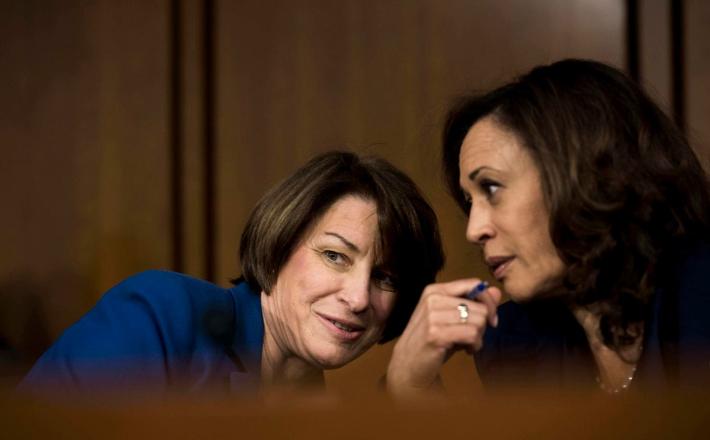Female presidential candidates have to overcome the sexism — of other women
Source: The Washington Post
By
There are already six women running for president in 2020, an unprecedented number, and two of them — Sens. Elizabeth Warren (Mass.) and Kamala Harris (Calif.) — routinely poll in the top five among the nearly two dozen Democratic hopefuls. But it’s still not clear that America is ready to elect its first female president. For that to happen, the overachieving women in the race will have to surmount the sexism of other women — specifically, non-college-educated white women.
Minority women have voted by double-digit margins for Democratic presidential candidates for decades. Conversely, since 2004, non-college-educated white women have voted Republican by double-digit margins, and by a seven-point margin in 2000. In 2016, their loyalty to the GOP looked like it could falter. Close to the end of the race, they swung toward Hillary Clinton. But in the last weeks of the campaign, they moved decisively for Donald Trump.
For this group, when it comes to female candidates, relatability is crucial. But when trying to relate to these voters, female candidates face a particular challenge: If non-college-educated white women can’t see themselves — their life choices and values — reflected in a woman who’s running for president, they’re probably not going to vote for her. They “tend to be even more judgmental along some of these dimensions,” says Celinda Lake, a prominent Democratic pollster. “There’s a judgey-ness there in a class as well as a gender way.”
Click here to read the full article published by The Washington Post on 17 May 2019.

By
There are already six women running for president in 2020, an unprecedented number, and two of them — Sens. Elizabeth Warren (Mass.) and Kamala Harris (Calif.) — routinely poll in the top five among the nearly two dozen Democratic hopefuls. But it’s still not clear that America is ready to elect its first female president. For that to happen, the overachieving women in the race will have to surmount the sexism of other women — specifically, non-college-educated white women.
Minority women have voted by double-digit margins for Democratic presidential candidates for decades. Conversely, since 2004, non-college-educated white women have voted Republican by double-digit margins, and by a seven-point margin in 2000. In 2016, their loyalty to the GOP looked like it could falter. Close to the end of the race, they swung toward Hillary Clinton. But in the last weeks of the campaign, they moved decisively for Donald Trump.
For this group, when it comes to female candidates, relatability is crucial. But when trying to relate to these voters, female candidates face a particular challenge: If non-college-educated white women can’t see themselves — their life choices and values — reflected in a woman who’s running for president, they’re probably not going to vote for her. They “tend to be even more judgmental along some of these dimensions,” says Celinda Lake, a prominent Democratic pollster. “There’s a judgey-ness there in a class as well as a gender way.”
Click here to read the full article published by The Washington Post on 17 May 2019.